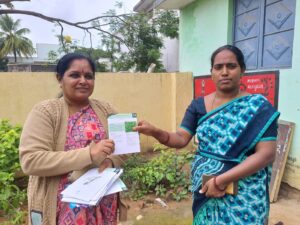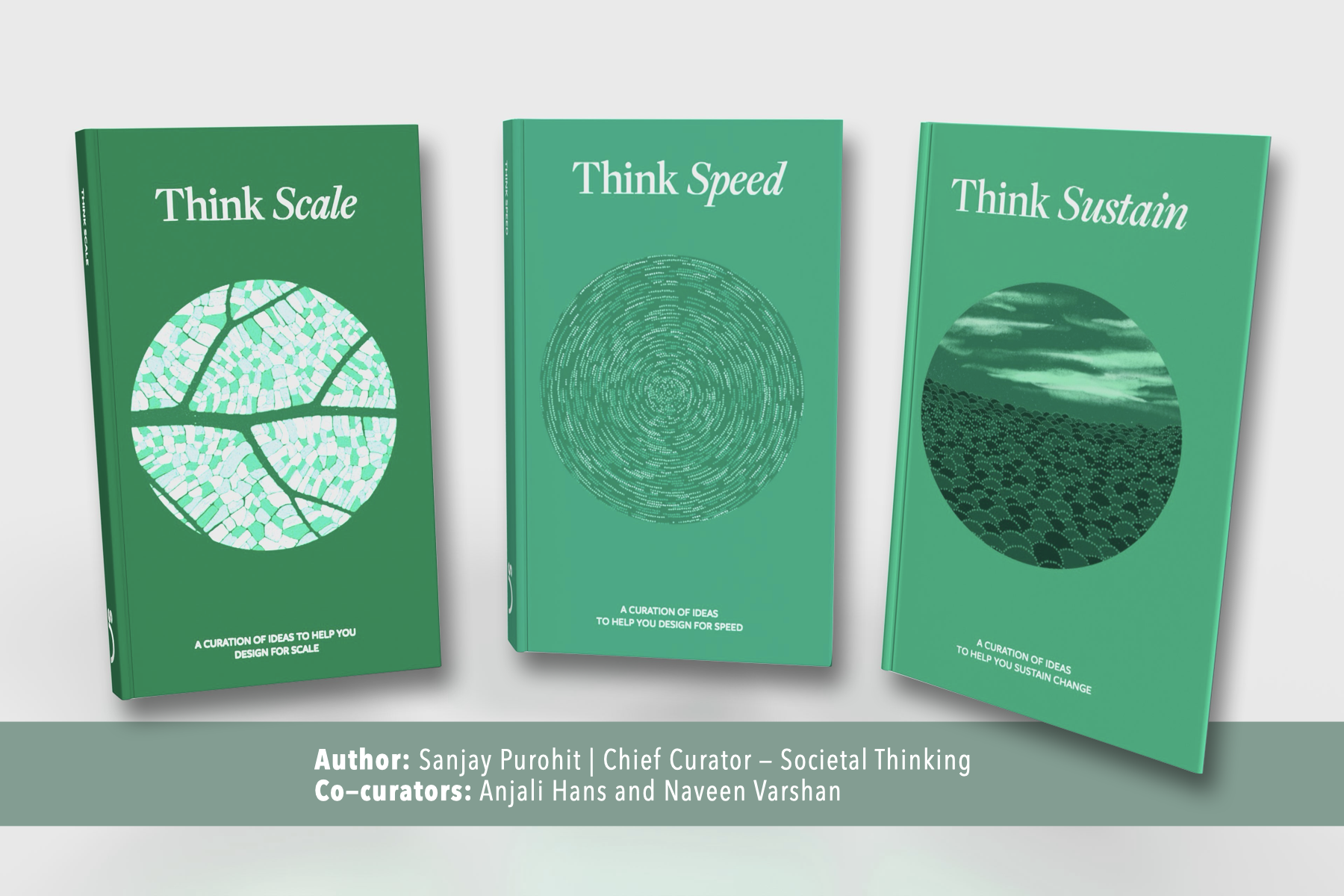What if we lived in a world where everyone had access to safe drinking water? It’s an imagination worth bringing to life – for it can empower communities to live healthfully and meaningfully. Especially when it is projected that two-thirds of the world’s population will live in water-stressed regions as a result of (over)use, economic growth, and climate change by 2025.
Despite having had a peek into the realities of water safety and security through our engagement with Arghyam, I had taken safe, clean water for granted. Until recently, when I discovered that a mere 3 hours drive from my home in Bangalore, in the town of Chikkaballapur and neighbouring villages, young children are growing up with stained teeth and the threat of stunted growth because of water contamination.
We visited Chikkaballapur and nearby villages with INREM Foundation, a non-profit that addresses water and environmental issues. As we drove through the narrow village roads, we were taken in by the green, lush hills and water bodies dotting the landscape. But this idyllic landscape soon revealed deep fissures – its groundwater is contaminated by fluoride. This groundwater is used for drinking, cooking, and agriculture! As borewells are dug deeper and deeper, the fluoride in the groundwater increases. Without water treatment or filtering, villagers are exposed to severe health risks that, if ignored, can affect their well-being and livelihoods.
A complex social issue like this one requires an effort from everyone – NGOs on the ground, government officials and communities. To equip all these actors to see, sense and solve the problems they face, INREM innovated a capacity-building programme, ‘Water Quality Management (WQM)’, which provides the right knowledge, tools and techniques to local communities to become Water Quality Champions.
During the visit, we wanted to meet a few Water Quality Champions in these villages to figure out if and how this mission can be scaled. We met and interacted with 3 different kinds of Water Quality Champions – a teacher, an Anganwadi worker, and a farmer, to understand how they are solving their community’s problems in a local, contextual manner. Our interactions, interestingly, revealed the power, potential and possibilities of catalysing a network of changemakers, with the right knowledge and resources. Here is how they are transferring knowledge and making services available for people at the first mile.
Durgappa, school teacher

Durgappa is a teacher at a government higher secondary school in Tungetidinna village. INREM identified that schools were a way to access the larger community in the village and trained teachers such as Durgappa could be effective Water Quality Champions since they work closely with children. Durgappa understands that lack of access to water translates to poor education outcomes, and safe clean water could empower his students and their families with health, resources and ultimately, lead them towards a bright future. As a Water Quality Champion, he educates his students on fluoride contamination and encourages them to drink filtered water. He has galvanised the staff to maintain a kitchen garden to grow local vegetables such as moringa (drumstick) and amla (gooseberries) that can mitigate the effects of fluoride contamination. Contamination is only a factor that contributes to the bigger problem of poor nutrition that his students face, and the school administration has stepped up and enhanced the overall nutritional value of mid-day meals by adding milk and eggs.
Using mid-day meals as the point of intervention created a ripple effect that went beyond staff and students, and went on to influence parents, the neighbourhood and communities at large. If teachers such as Durgappa can be empowered to champion nutrition and clean drinking water, and solve local problems, it can spark a generative cycle of meaningful change and draw more and more of the community to take action. Share on X
Sukanya, Anganwadi worker
Sukanya, an Anganwadi staffer at Somakalpalli village has moved away from using borewell water and instead, purchases filtered water from an RO plant for cooking and drinking from her own money. She has created a soak pit and a kitchen garden.. She uses instructional materials in Kannada, the local language, to educate women on making informed choices around water. Early interventions can effectively minimise the harmful effects of fluoride contamination. As a Water Quality Champion, she is perfectly positioned in the larger community to influence pregnant women, lactating mothers and young children.

At the intersection of water and health are often stories of severe illnesses caused by drinking contaminated water. If women are informed and empowered to make decisions, it can help raise entire families – and communities – in safety and health.
Ramachandra Reddy, Farmer and Community Resource Person for FES
Ramachandra Reddy is a farmer in Rechanayakahalli, and a Community Resource Person (CRP) at Foundation of Ecological Security (FES), a non-profit that works towards the conservation of land, forest and water resources in the country. Armed with a testing kit to monitor contamination levels, Ramachandra spreads knowledge to other farmers, maps hotspots of contamination, collects data and explores water management solutions to improve agricultural output.
At Chikkaballapur, FES’s programmes are focused on monitoring wells, maintaining water bodies and rejuvenating water resources. By collaborating with FES, INREM has added water testing and kitchen garden efforts to their list of services and reached 25 gram panchayats comprising 200+ villages covered by 65 CRPs. Going forward, if FES can include safe water security in its nationwide agenda, it can reach its partner NGOs that work with 41,880 village institutions across 14 states, thereby impacting the health of millions of people.

We interacted with only a few of the many actors involved in solving this complex social problem. There is scope for many more interactions to facilitate proactive participation, value exchange and co-creation among them. What struck me was the energy and enthusiasm I witnessed in the people I met, from INREM staffers to the water quality champions, as they took charge of solving their own problems.
Read how Arghyam is leveraging technology to bring together actors across civil society organisations, governments and markets in a Societal Platform. Who are the other actors you would consider bringing in to further the mission of clean drinking water for all?
 Back
Back


